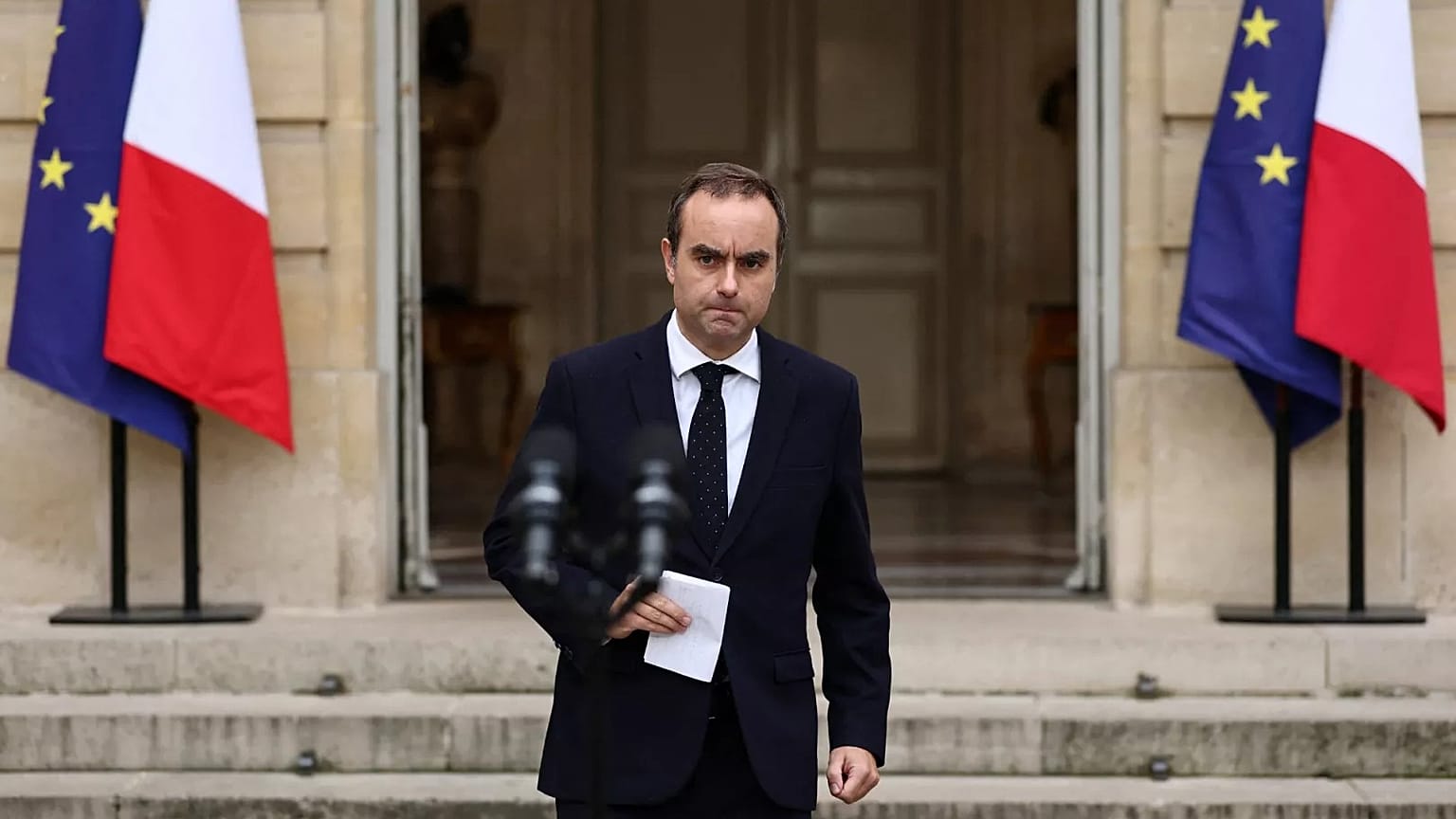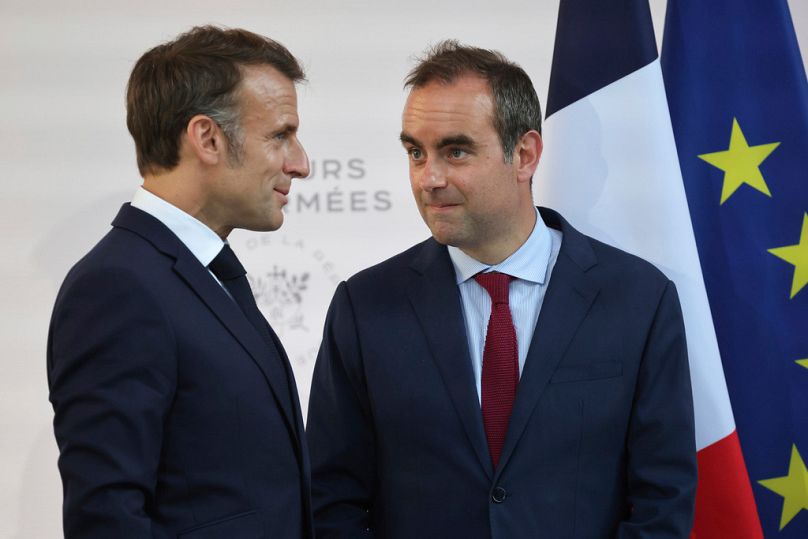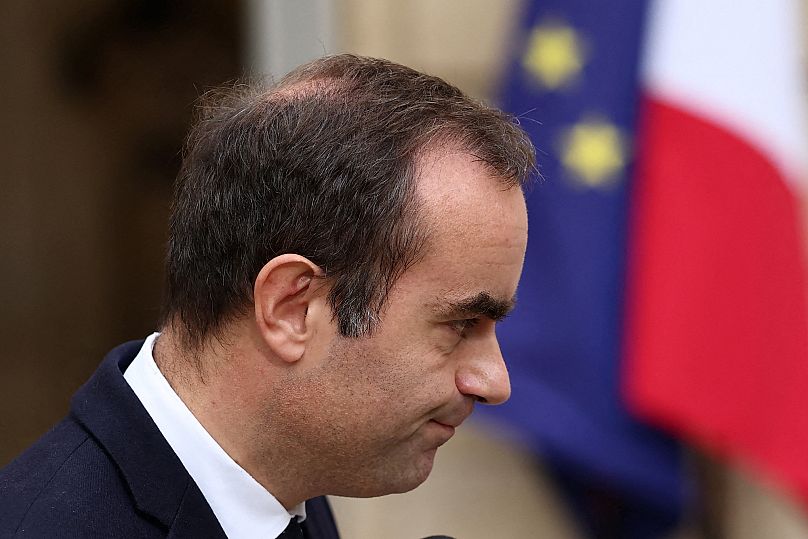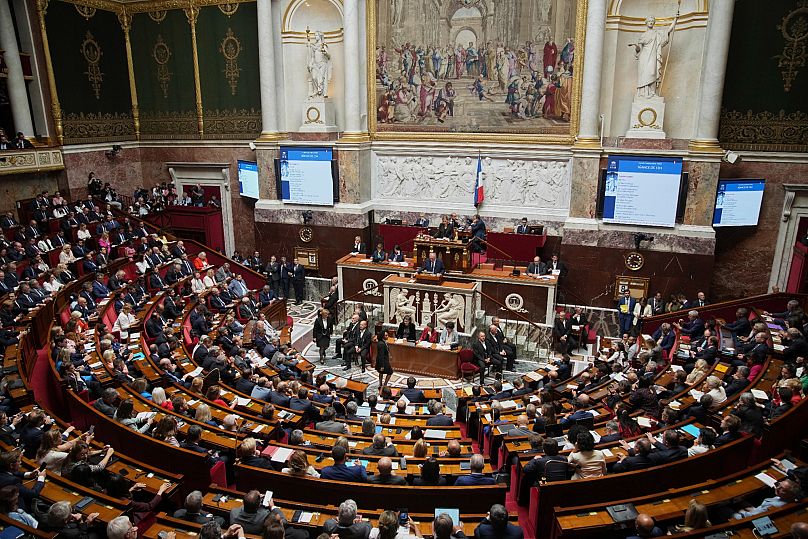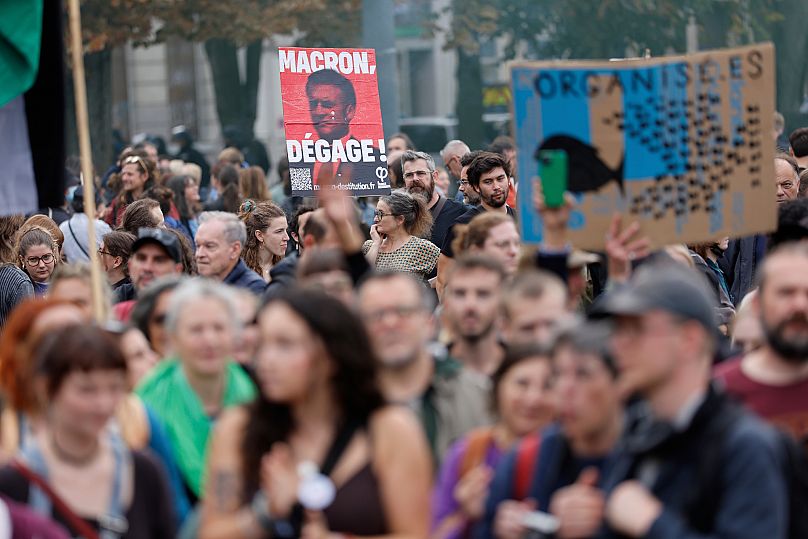Lecornu's abrupt resignation plunges France into a deeper political crisis and leaves French President Emmanuel Macron with few options.
France has been thrown into yet another period of political turbulence following the abrupt resignation of Prime Minister Sébastien Lecornu on Monday, making him the shortest-serving head of government in modern French history.
 ADVERTISEMENT
ADVERTISEMENT
 ADVERTISEMENT
ADVERTISEMENT
Despite stepping down, Lecornu has not completely disappeared from the political scene.
The Élysée Palace announced that Emmanuel Macron has asked him to lead what it called “ultimate negotiations” before Wednesday night.
In a post on X, the outgoing prime minister confirmed he had accepted the assignment, saying: “I will tell the head of state Wednesday evening if this is possible or not, so that he can draw all the necessary conclusions.”
Macron has effectively bought himself a few more days before making a definitive move, but signalled that, should talks collapse, he will "take his responsibilities."
Adding to the impasse, Lecornu has already told the president he will not return to the role even if negotiations succeed, underscoring just how difficult the premiership has become.
Lecornu was President Emmanuel Macron’s fifth prime minister since 2022 and the third since last summer's snap parliamentary elections.
Those elections left France with a hung parliament divided into three blocs: the president's centrist alliance, a left-wing coalition and the far-right National Rally.
None has a workable majority, and each is more focused on sharpening its position ahead of the 2027 presidential race than on compromise.
The political crisis is also a financial one. France's deficit is close to 6% of GDP - double the EU limit - and its debt is among the highest in the bloc.
Passing an austerity budget through this fragmented assembly has already cost two of Lecornu's predecessors their jobs, and Lecornu quickly realised he would meet the same fate.
The backlash against his cabinet appointments confirmed it. By reappointing many familiar faces on Sunday evening, Lecornu angered allies and opponents alike.
Conservatives said the lineup failed to represent the promised "break" with past politics, while others dismissed it as proof that French President Emmanuel Macron is still refusing to make any compromises.
Now the burden falls squarely on the French head of state, who faces few easy options.
Option 1: Appointing a new prime minister
The most immediate step would be to name another prime minister. In theory, Macron could try again with someone from his own centrist alliance, but Lecornu’s rapid downfall has shown the limits of that approach. Any government led exclusively by his camp is likely to face the same hostility from other parties.
One alternative would be to look beyond his base, perhaps appointing a moderate figure from the opposition or even a technocrat seen as more neutral.
However, this carries significant risks. A left-wing appointment would likely force Macron to compromise on economic reforms, particularly his controversial pension overhaul.
While choosing someone on the right could alienate the left and prompt more no-confidence votes.
Adding to the difficulty, the premiership itself is increasingly viewed as a poisoned chalice.
With the 2027 presidential race already looming, few politicians want to risk their chances by taking on the job.
Option 2: Dissolving the National Assembly again
Constitutionally possible since the one-year limit after the last dissolution, this would send voters back to the polls within 20 to 40 days.
Yet fresh elections would likely reproduce the same divisions or even strengthen the far-right or left-wing bloc.
The 2024 snap election was widely viewed as a miscalculation, producing the current hung parliament.
The president has consistently expressed reluctance to gamble on another dissolution, but if the deadlock persists and no budget is passed, pressure to return to the voters may become overwhelming.
Option 3: Macron’s own resignation
A more radical possibility is Macron himself stepping down, something demanded by parts of the opposition, especially the left.
Were he to resign, the constitution provides for the Senate President Gérard Larcher to take over temporarily, with a new presidential election organised within 20 to 50 days.
This scenario, however, remains unlikely. Macron has repeatedly pledged to serve until 2027, insisting he will not abandon his mandate.
Option 4: Impeachment of the president
A step even further than resignation would be a removal from office by parliament.
This is a scenario championed most vocally by the hard-left France Unbowed party (LFI), which has long argued that Macron’s leadership has become incompatible with the exercise of his mandate.
The 2007 constitutional reform does provide a legal pathway: in cases of “breach of duty manifestly incompatible with the exercise of the mandate,” the president can be removed.
But the process is extremely complicated. Since its creation, the procedure has never succeeded.
What happens to the budget?
For now, France is under a caretaker administration. Like after the fall of François Bayrou’s government in September, Lecornu and his ministers can only manage day-to-day affairs. They cannot introduce major reforms or make significant appointments.
This means the most pressing task facing France - the adoption of the 2026 budget - cannot be advanced by Lecornu’s team.
His resignation rendered Monday’s budget presentation obsolete, and a new government will now need to draft and defend a fresh finance bill in parliament.
Under French law, the proposal should be submitted by 13 October to allow time for debate and constitutional review.
But this deadline is impossible to meet, even if a new prime minister is appointed quickly, as preparing a revised budget would take weeks.
Parliament could vote only on the revenue section of the budget, ensuring the state can continue collecting taxes.
Another fallback would be the adoption of a "special law" that temporarily extends the previous year’s budget, which is what happened in 2025.
This would allow the state to keep financing public services while political negotiations drag on.














